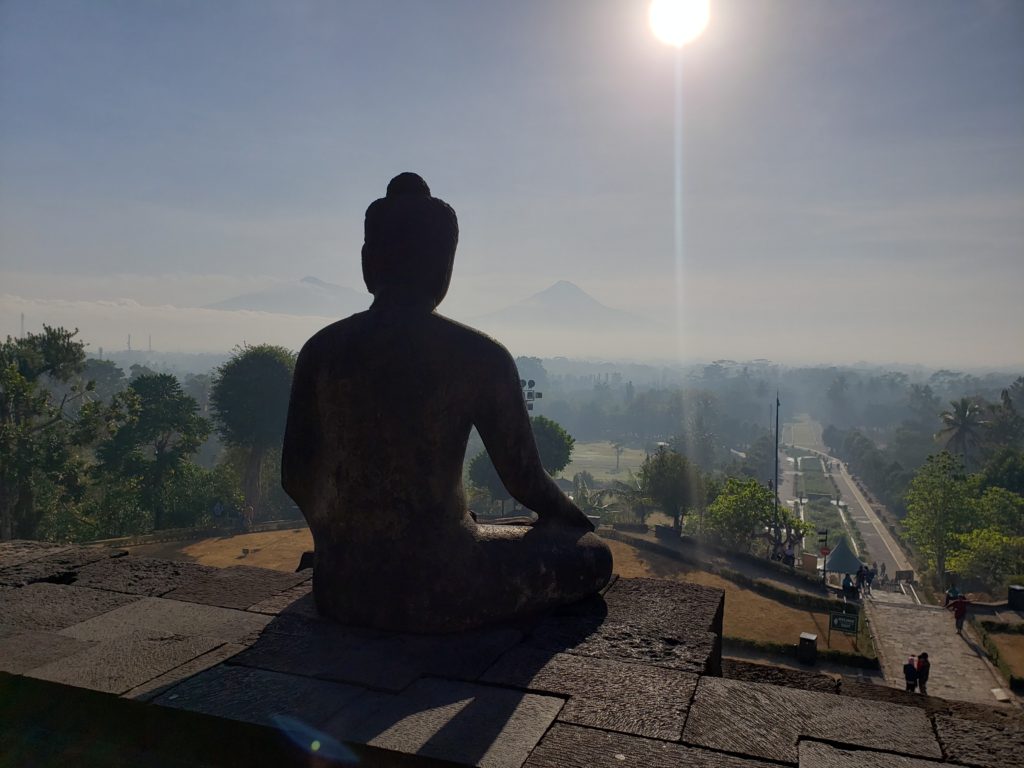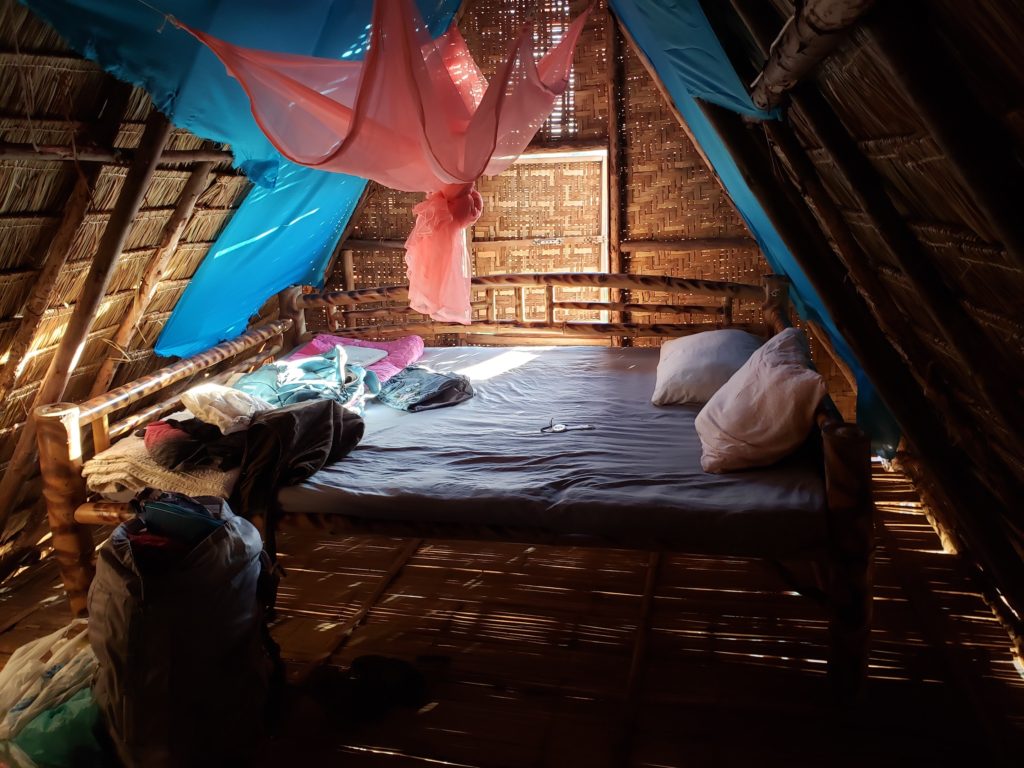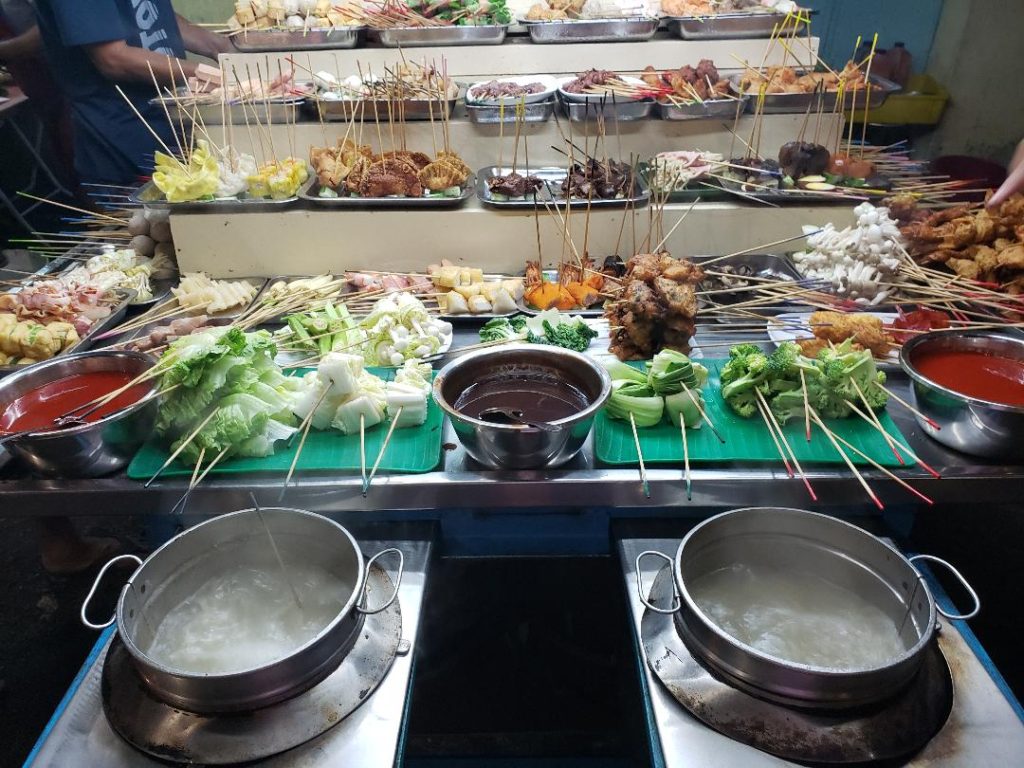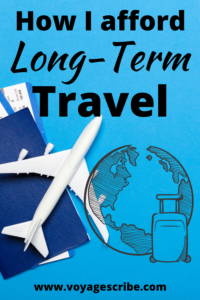My first time long-term traveling was when I backpacked in Southeast Asia in 2019. Over the course of four months, I visited seven countries, had countless adventures and got completely hooked onto full-time travel. I continued traveling to other continents since then, and the most common question I’ve gotten since I began was: How do you afford to travel long-term?
When I flew out on the start my SE Asia journey, I had just recently graduated from university and hadn’t been able to secure a “career job.” So, I guess it made sense people were baffled on how I managed to afford to travel long-term.
But I never got this question from the people I met out there doing the same thing as me. Because they know and live my secret too:
It’s a lot more possible to afford long-term travel than everyone thinks.
Here are the steps I took to be able to afford long-term travel at the start, and they’re the same steps many of my fellow backpackers took too.
Disclaimer: I recognize I was extremely lucky to have circumstances allowing me to travel long-term. No debts, no dependents, nothing tying me down to any one place. But I met lots of travelers from all walks of life who, despite setbacks, managed to realize their dreams of long-term travel. You’re a lot more capable than you might think to realize your own dreams.
So, here’s how I managed to start long-term traveling, and how I continue to afford it.
Table of Contents
1. Save up for a year
This is what my schedule was like before my first long-term trip: Wake up for my internship, which starts at 8 am. Work until noon and take a break for lunch. Then work on my blog, freelance on Fiverr and write my book the rest of the day until 9 pm, when I would go to work cleaning hair salons until roughly 2 am. Wake up early for the internship, and do it all again.
Breaks on weekends? Ha, no. Instead, I would work on my blog, Fiverr gigs and book as much as humanly possible. I’m not trying to promote overworking yourself and not getting enough sleep but…how much do you want to travel?
I also didn’t spend much money during that year. I stopped going out and stopped drinking. I’ve never been a shopper either. That meant I wasn’t spending money on useless things I didn’t really need, and most of the money I made went straight toward travel savings.
So the secret to save up enough money to start traveling is as simple as this:
Earn money, and don’t spend it on anything except necessities and travel.
When you’re in a store, ask yourself: Will I survive if I don’t buy this? If no, can I find a cheaper option (i.e. off brand, use smaller quantities)?
When you’re deciding whether to spend money on an activity with friends, ask yourself: Do I want to go to this concert or restaurant or bar (or whatever it is) more than I want to travel? If yes, enjoy the concert or restaurant or bar (or whatever), and stop complaining you’re not traveling.
You need to want it more than anything to make all the sacrifices necessary.
Were the months leading up to that first trip awful? A bit. But the following four months of travel made up for it more than I could ever have imagined. I’d do it over and over again for the rest of my life if I had to.
And I met lots of people doing this same thing. That is, work for a few months, then travel for a few months, and then repeat that cycle. There are people out there who’ve been doing this for years, and they’re some of the happiest people I have ever met.
It’s not an easy or stable life. But it’s a really, really good one for the most part.

2. Don’t be tied down to a certain place
Specifically, you can’t really commit to renting an apartment or house if you plan to be gone for months or years.
How did I go about it? I moved back in with my parents.
When I was still in college, this was my biggest fear. After tasting the freedom of living on my own, I thought I wouldn’t be able to live with my parents again.
But it wasn’t as bad as it seemed. It’s great having a base to take a break from long-term travel, or, you know, a base for when there’s a global pandemic stopping you from traveling.
And not paying for rent was the main reason I was able to save up enough money. Many of my friends want to travel, but much of their money goes to rent.
Here’s something most people might find shocking: I lived off of less money per month traveling in Asia (for all expenses: transportation, accommodation, food, tours, etc.) than one month’s rent for an apartment in Chicago would cost.
So if you’re paying for rent, you could be using that money to travel full-time instead.
Of course, I know moving in with parents isn’t an option for everyone. But think to yourself: Is there any way you can cut down on your living costs when you’re not traveling? Move to a cheaper place? Get a roommate? Sublet (or rent if you own the property)? Move in with a family member or friend when you’re back home?
Ultimately, you have to ask yourself: Would I rather live in comfort now but not travel, or live in not ideal conditions but be able to travel? I continue to choose the latter.
3. Find ways to make money online
I also experimented with working remotely so I could still make money while traveling (and not go through all my savings). I’m so glad I did, since these endeavors are now my main source of income so I can keep traveling long-term.
Travel Blog
One of these experiments was this blog: Voyage Scribe. (Welcome, by the way!)
It’s a platform for writers who travel, and I’m hoping to make money with it using affiliate marketing. But if that fails, at least I’m enjoying showing people the amazing places around the world where I’ve been writing, and hopefully inspiring them to set off into the world on their own writing-filled trips!
I also recently starting selling travel journals, among many other passive income experiments.
[Psst: If you’re a writer who likes to travel, check out my Writer’s Travel Guides! They’re travel guides specifically designed for writers, including great writing spots I found. And make sure you sign up for my FREE travel-inspired writing prompts newsletter.]
Freelancing (proofreading & editing)
And I started doing freelancing work. I started with designing blog logos, although I’ve since stopped. What I did next, setting up Fiverr gigs for beta reading and proofreading, pushed me in the direction I’m headed now. I wanted to be an editor since high school, and while I decided against that career path in college, funnily enough that’s where I’ve ended up.
The pandemic forced me to get serious about starting my freelance editing business. So when it’s safe to travel again, I’m good to go full-time as a proofreader and editor!
[I offer proofreading for academic writing and developmental editing for fiction books. If you’re interested, you can book my services on my website: NC Editing]
Teaching English Online
Also, in preparation for traveling long-term again after Covid, I recently started online English teaching. It’s a great source of income for travelers who are fluent or native English speakers.
I also met lots people in Asia who were living in countries like Vietnam and Thailand as in-person English teachers.
If this is something you’d be interested in (you’re more likely to get an in-person job if you already have experience), I’d recommend the company I work for: Magic Ears. The 25-minute classes are fun and go by fast since you teach up to 4 kids at once and the lessons are all planned out for you.
If you have any questions about Magic Ears or its hiring process, please reach out to me and I’d be happy to help you! Here’s my referral code if you’d like to apply.
Edit Fall 2021: Apply NOW if you’re even considering it! Chinese online EFL companies are shutting down due to government regulations, so now’s the time to try it before the well paying jobs disappear.
4. Travel to Cheap Places
It’s cheap in SE Asia. Like, so cheap. I heard it was cheap, but thought it was too good to be true. It wasn’t.
On average, I spent roughly $1000 a month while traveling. For everything.
And I could have done it on less, but I decided to splurge every once in a while—on an expensive tour, on a “Western” meal, on the occasional hotel. And I usually chose to pay double for a nicer hostel. By that I mean paying $6 instead of $3 (usually for nicer conditions, free breakfast, a pool, social activities and near perfect review ratings; yeah, all for just a few bucks).
I knew hostels would be cheap in SE Asia, but I didn’t know how cheap. Or how nice. The quality of the $5 hostels there were incomparable to hostels I stayed at in Europe, where I averaged around $20 a night for the cheapest hostels.
Most hostels I stayed at in SE Asia were absolutely amazing. I almost always had curtains for privacy on my bunk bed, enjoyed cozy common areas where I could meet new travel buddies and lack of cleanliness was almost never a problem.
[Psst… read about my favorite hostels from my SE Asia trip here!]
Traveling in South America was fairly cheap as well, and it was supposed to be my second long-term travel trip…except for Covid.
Now that I have a more stable location-independent income, I travel to more expensive places (but I still budget travel, i.e., staying in hostels, long-term rentals, traveling in a van), but I’d recommend starting in cheaper countries.

5. Become comfortable with rustic conditions
That being said, these cheap accommodations aren’t for people used to luxury travel.
Expect long nights on buses driving on bumpy roads with too-small seats. Dorm beds with questionable cleanliness and in rooms shared with lots of strangers. Stressful days trying to plan the cheapest options possible. Questionable safety on transportation and activities.
Real backpacking is far from glamorous, but if you’re ready to accept that, and ready for anything with a sense of adventure, it will be the most rewarding experience of your life.
Don’t worry if you think you’re cut out for the rustic conditions. You get used to it after a while. I definitely did, to the point that staying in a luxury hotel felt too sterile and so weird, and even uncomfortable.
6. Meet fellow travelers to share costs with
The best thing about solo travel and staying at hostels is meeting others doing the same thing as you. A common phrase I’ve heard from other backpackers is that even though we solo travel, we’re hardly ever actually alone.
It’s great to have someone who’s sharing the same experiences as you and who helps you make decisions on travel plans. The extra security and always having someone to take pictures of you are other benefits.
But at the very least, even if you really don’t like being around people, you should find a travel buddy to help share costs.
This usually entails splitting costs on taxi or ride sharing services, as they are sometimes the only way to get around and can be expensive for just one person. Although hostels can be found almost everywhere, there were a few areas I’ve encountered with only private rooms available. Those could also be more expensive alone (by backpacking standards, at least; still rather cheap at $15-20 for the cheapest private room in Asia).
And the bigger group you have, the better prices you can haggle. Especially in off season, you can leverage the amount of potential customers you have in your group to negotiate a lower price for things like tours and transportation.
For example, when I arrived in a port on Bali and needed to get to Ubud, the only way to get there was with a 3-hour taxi ride. Luckily, I was with a group of people I met on a volcano tour on Java. Since there were so many of us, we convinced a taxi company to drive us by van for a cheap price. The 3-hour private drive with the notoriously stubborn Balinese taxi mafia cost me only $7. It would have been considerably more expensive if I had to get a taxi alone.
7. Eat local food and buy from street vendors
The idea of eating local food is usually has an exciting allure. But here’s what that (usually) means in SE Asia: fried rice or fried noodles.
Sure, there are going to be other options available. Maybe a papaya salad or a local soup. But for the most part, your two main options will be rice or noodles. I’m currently at a stage where I can’t even think of eating rice.
When I first got to Asia, I was spending too much money on food. At the time I didn’t know it, though, because everything seemed so cheap to what I was used to!
$5 for a dinner? Great, I had thought, what a steal! By the end of my trip, I would cringe at the thought of handing over $5 for only one meal!

8. Always look for a cheaper option
While you can’t haggle for the prices of food in a restaurant, you can haggle for almost everything else in SE Asia. Not only can you, but you should in most circumstances!
This includes buying from clothes and souvenirs from street markets, using taxis or tuk tuks and even booking activities and tours.
And when you’re traveling between places, always choose the cheaper option. Buses are generally cheaper than trains and flights, although they may take longer. But when you’re traveling long-term, in theory you have that time to spare.
I would also try to book overnight buses. Yeah, it’s near torture spending all night on a crowded, bumpy bus. But it was the cheapest form of transportation, saved me money on not having to book a hostel for that night, and I didn’t waste a whole day traveling.
And massages are cheap in Asia; you can use a few dollars from what you saved on a massage to counteract the damage caused to your body by the bus. And then go take a nap on the beach, and it will all be worth it.
I also do lots of research on good deals. Like when I traveled the entire US by train for a month with Amtrak Rail Pass for only $300.
And I hardly ever stay in hotels. Hostels, AirBnBs, camping and long-term rentals are usually significantly cheaper options.
9. Find cheap flights
Okay, you might think. The actual traveling in Asia part is really cheap. But getting there is the expensive part.
Yeah, it could be. But if you do your research, you can score a good deal. My one-way flight to Kuala Lumpur from Chicago was around $350.
I almost booked a roundtrip flight from Chicago to Japan for $500 (but then Covid happened). And roughly the same price for a roundtrip flight to Bangkok.
Aim for roundtrip flights since they come out cheaper (although admittedly I often book only one-way flights since I suck at planning).
Traveling in South America is quite cheap too. After my Asia trip, I flew there for $125.
And after that, I flew roundtrip to Europe for $550.
It’s really easy to fly cheap if you plan it right.
I use Skyscanner mostly because I know it offers the cheapest prices available. And also Google Flights since it has tools making it easy to find the cheapest times and places to fly.
Also, make sure you have a good credit card that will earn you points for travel. That flight to South America I mentioned? It was free, curtesy of the $200 I got for signing up for the Chase Freedom Unlimited card.
10. Volunteer
So, I actually didn’t do this one on my last trip, but it’s my plan for my upcoming trips.
I met a lot of people working in hostels I stayed at. They got to live in them for free in exchange for a few hours of work each day. The most popular platform was Workaway, and the amount of opportunities you can find on this platform are endless!
I’ve seen ads from people looking for all types of volunteers, from doing farm work, to carpentry, to teaching English, to painting art murals, to teaching yoga, to childcare, to community projects.
There are so many options, and in addition to accommodation, some Workaways offer some or all meals for free too. And the best part is you really integrate into the local culture and meet awesome people!
No matter what you choose, if you do a Workaway, technically all the money you’ll need is for the flight to that country and just a little bit of pocket change and emergency money (always travel with emergency money—trust me, you’ll need it).
You really don’t need a lot of money to see the world.
So, that’s how I did it! And it’s how I’ll keep living a life of long-term travel until I get tired of it…which I hope will be never!
Do you have any other tips for long-term travel? Do you have any questions?
Leave them in the comment section below!







![Mistakes to Avoid and Tips for Travel in Lombok, Indonesia [2023] Mistakes to Avoid and Tips for Travel in Lombok, Indonesia [2023]](https://www.voyagescribe.com/wp-content/uploads/2022/10/20220927_164439-150x150.jpg)



Great tips, Natalie. One has to get creative to earn the extra cash for travelling! I’m writing this from Thailand, since it’s one of the cheapest tropical escapes 🙂
Great Tips Natalie. I have found that people who can live in hostels and can eat local food save way more money than people like me who stay at an average hotel and are picky eaters haha. I also need to get into freelancing to earn money.
Some great ideas here! If you want something badly enough you can make it happen…..
Great ideas for solo travelers. I am sure this is an experience of life to be able to explore the world at your own. Good luck.
Wonderful tips! I’ve just started dreaming of long term travel so these are great ways to help make it happen!
These are great tips. The older one gets the more you realize you do not need all the worldly possessions. Sure, it is great to have some comforts, and money is a necessity and plays a huge part in making that life comfortable but travel also makes you richer in so many other ways. Well done for having taken the step.
These are really great ideas!
Weirdly, there is definitely comfort in the discomfort of backpacking. Can second that staying in hotels are a strange/disconnecting experience now.
Here’s to hoping we can safely stay in hostels soon!